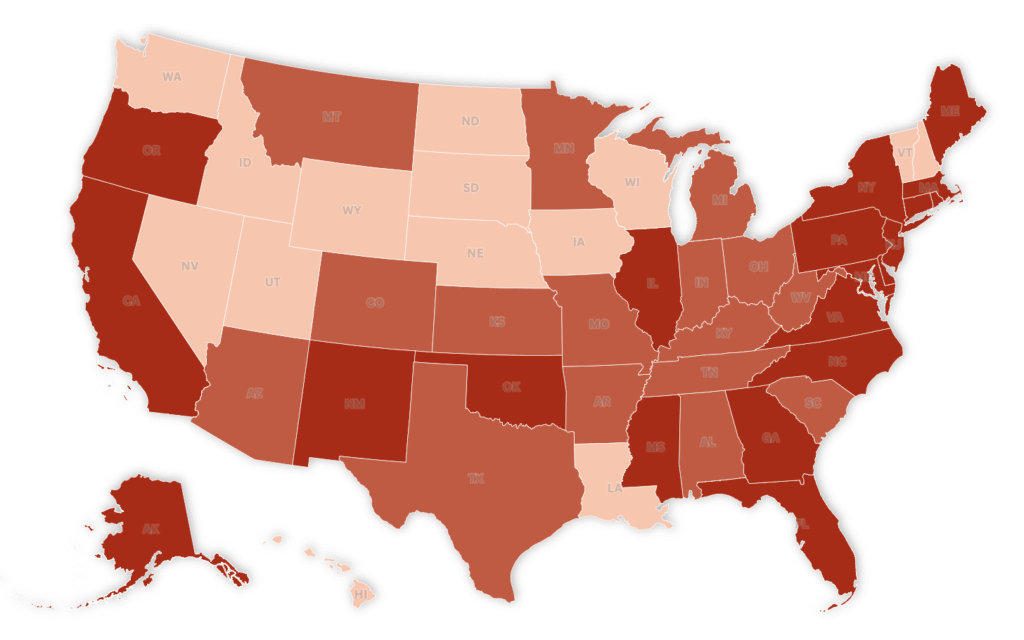Senate lawmakers have passed their version of the sprawling One Big Beautiful Bill Act, and within it are some significant changes to the funding of Supplemental Nutrition Assistance Program (SNAP) benefits that will impact every state in America.
Why It Matters
The bill, which is the central tenet of President Donald Trump’s fiscal agenda, marks the biggest overhaul to SNAP benefits in recent years, with implications for the 40 million recipients across the country.
Republicans have said the changes will better defend the integrity of the program, while critics of the bill have warned that already strained state budgets will not be able to cope with the extra financial demand, with some warnings that states could drop out of the program entirely.
Senate Bill Changes Explained
The bill proposes shifting more of the financial burden for the food stamps program onto states. Currently, states split the administrative costs of SNAP evenly with the U.S. Department of Agriculture (USDA), while the USDA covers the full cost of the benefits.
The measures propose that states be required to pay a portion of the benefit cost, but only if they have high payment error rates. An error payment (also called an improper payment) means that the amount of benefits issued to a household was incorrect — either too high or too low. This can happen due to recipient reporting errors or miscalculations by the administering state agency.
Under the Senate plan, states with an error rate less than 6 percent would not have to share the cost of benefits with the federal government. For states with rates above this, they will need to pay according to how high their error rate is:
- 6 to 8 percent: 5 percent cost-share
- 8 to 10 percent: 10 percent cost-share
- 10 percent or greater: 15 percent cost-share
Here is what each state would be required to pay, as a percentage, based on their 2024 error rate:
Support
House Agriculture Committee Chairman Glenn “GT” Thompson and Senate Agriculture Committee Ranking Member John Boozman, both Republicans, said the USDA has “failed at maintaining program integrity” and will incentivize states to reduce improper payments.
On June 29, the White House said the “mission of the program has failed” and that the bill “promotes work, responsibility, and restores SNAP to serve the truly needy.”
Criticism
Critics have warned the measures could have far-reaching consequences on state finances and, in turn, SNAP recipients.
Several states have warned they will have to pay hundreds of millions per year to shore up benefits for recipients. For example, Michigan previously warned that cost-sharing would set the state back $800 million per year under House-approved rules, which mandated states pay up to 25 percent of the cost of benefits.
If increased bills on state coffers prove unaffordable, states can stop offering federal food assistance altogether.
In a letter to Senate and House minority and majority leaders, all 23 Democratic Governors warned against the policy, arguing it would “effectively gut this critical food assistance that helps families with children, older adults, and working people afford the rising cost of groceries and put food on the table.”
“The combination of massive cost increase to states, the unpredictability of how much a state will be on the hook for from year to year, and the need for states to balance their budgets creates a significant risk that states have to leave SNAP altogether,” the letter reads.
What People Are Saying
The White House said in a memo published on June 29: “The One Big Beautiful Bill protects and strengthens SNAP. Right now, almost three-quarters of able-bodied adults without dependents on SNAP have no earned income and the fraud rate is high. The mission of the program has failed: SNAP was intended to be temporary help for those who encounter tough times. Now, it’s become so bloated that it is leaving fewer resources for those who truly need help. We are committed to preserving SNAP for the truly needy.”
Representative Glenn “GT” Thompson and Senator John Boozman, said in response to the USDA publication of 2024 error rates: “Another year, another troubling payment error rate in SNAP, a clear sign that the program lacks the state accountability measures hardworking taxpayers deserve. The status quo, slap-on-the-wrist penalties from USDA have failed at maintaining program integrity in SNAP. This is exactly why we need to get the One Big Beautiful Bill to the President’s desk. Its historic reforms will give states skin in the game on SNAP benefits and ensure they have a real incentive to improve oversight and stop improper payments before they happen.”
The Center on Budget and Policy Priorities think tank said in its analysis of the Senate proposals: “The Senate Agriculture Committee proposal would slash billions in federal funding for food assistance and impose those costs on states for the first time. This would likely lead many states to cut food assistance for low-income families, worsening hunger and undermining SNAP’s ability to meet greater need when the economy weakens. States could even end SNAP altogether if they decide the costs they would bear are too great.”
What Happens Next
SNAP cost-sharing rules will come into force in 2028 if the bill becomes law.
The bill now heads back to the House of Representatives, where lawmakers will cast a final vote. If it passes, it will head to President Trump’s desk to be signed into law.
Read the full article here
